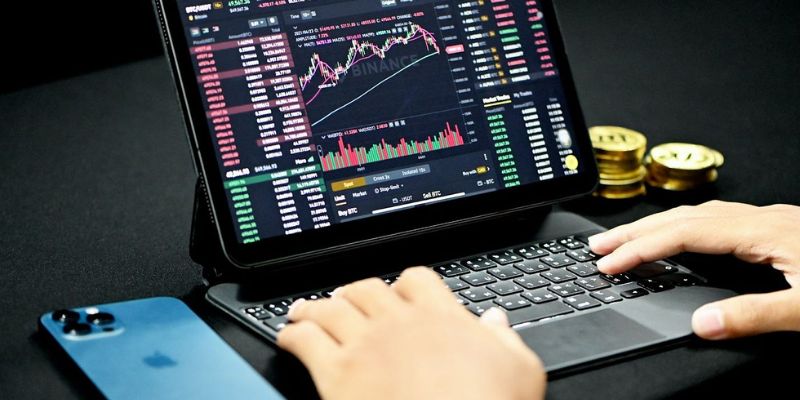Have you ever heard the term "margin equity" and scratched your head wondering what it was? You're not alone! Margin equity is a financial concept many people find confusing, but it's important to understand.
After all, understanding margin equity can give you insights into how to better manage your finances to maximize returns. We'll examine margin equity and its importance for savvy investors. We'll also simplify some of the terminology so anyone can get up-to-speed on this essential finance principle.
Margin Equity

Margin equity is the difference between the value of a security in your account and the amount borrowed from a broker, which is provided as part of margin trading. When you use margin to buy securities, your broker will loan you money so that you can purchase more than what's available in your capital. This loaned money is called "margin."
The amount of margin you receive depends on how much collateral (securities) are held in your account.
Your equity is calculated as the market value of all eligible securities minus any loans taken out against those securities. For example, let’s say you have $10,000 worth of stocks in your portfolio and borrowed $5,000 against them using margin.
How does margin Equity work?

When you use margin trading to purchase securities, it’s important to understand that the amount of available money is subject to change. This is because the value of your assets can go up or down with market fluctuations, affecting how much margin you can borrow against them.
If the value of your stocks rises above their purchase price, you can borrow more money from your broker using additional margin. On the other hand, if the value of your stocks drops lower than what was originally paid for them, then the amount of margin available decreases accordingly. As such, it’s important to monitor the changes in margin equity and adjust trades accordingly.
By understanding how to monitor and manage your margin equity, you can take full advantage of the trading opportunities available to investors. With a better understanding of how margin works, savvy investors can make informed decisions and maximize returns on their trades.
Margin equity is an important concept for anyone looking to get into investing or trading securities since it’s essential for managing your portfolio and taking advantage of different types of investments. Understanding how margin works and keeping track of your margin equity can reduce risk and increase your potential profits.
Margin Account Rules
Regarding margin equity, certain rules and regulations must be followed. Before opening a margin account with your broker, it's important to understand the terms of the agreement. Most brokers require that you keep a minimum amount of margin equity in your portfolio at all times (usually around 25-30% of the total value).
This is known as the maintenance requirement. Furthermore, if your equity dips below this level, your broker may issue a "margin call, " meaning they will demand additional collateral or cash to meet their requirements. If this happens, you'll need to act quickly or risk having some of your securities sold off to cover the debt.
It's also worth noting that most brokers charge interest on margin accounts, so consider this when considering your options.
Initial Margin
The initial margin is the minimum amount of collateral you must deposit with your broker before opening a margin account. This requirement varies depending on the broker, but it's usually about 50% of the purchase price of the securities being purchased. It's important to understand this requirement to know how much money you need to open a margin account and begin trading.
Margin for Maintenance
The minimal amount of equity you must always keep in your account is known as the Margin for Maintenance. Depending on the broker, this requirement can range from 25 to 30 percent of the total value of your securities.
This requirement is important for maintaining a safe level of collateral against any losses incurred in margin trading. If your equity dips below this level, you'll receive a margin call from your broker, meaning they will demand additional funds or assets to meet their requirements.
What Is the Margin Equity Percentage?
The margin equity percentage is the ratio of your account's equity to its initial balance. This calculation can provide insights into whether or not your portfolio is healthy and able to withstand losses in case of market volatility. Generally speaking, your margin equity percentage should remain above 30%. Anything below that level may be too risky and could result in a margin call from your broker.
The Importance of Knowing Your Margin Equity and Margin Equity Percentage
Now that you understand the basics of margin equity and margin equity percentage, it's important to remember why these calculations are important. Knowing your margin and margin equity percentage can help you make sound decisions about how much risk to take in your investments and indicate when additional funds or assets might be needed to keep your portfolio safe.
By understanding these concepts, anyone interested in investing can make smarter choices about their money and better manage their financial future.
Benefits of Margin Equity
Leverage
Margin equity allows investors to borrow money from their broker and buy more securities than they would have been able to afford with just their capital. Savvy investors can still make good returns even when markets are volatile by leveraging margin.
Liquidity
By utilizing margin, investors can quickly purchase or sell securities without waiting for cash to be available in their accounts. This allows them to capitalize on market opportunities as soon as they arise, creating great liquidity for their portfolio.
Increased Profits
Smart leverage strategies can help maximize profits during periods of high volatility and allow investors to take advantage of short-term market movements without committing large amounts of capital.
Diversification
Margin equity can be used to diversify investments to mitigate risk by spreading out the cost and potential returns across multiple securities, industries, and markets.
Reduced Risk
By only investing what they can afford to lose, margin traders can reduce their exposure to potentially significant losses should the market move against them.
Accessibility
Unlike traditional forms of loans or financing, margin accounts provide investors with easy access to funds without going through a lengthy application process or waiting for approval from a bank or other lender. This instant accessibility makes it easier for people who don’t have much money saved but want to start investing immediately.
FAQS
What is a good margin for equity?
Ideally, you want to keep your margin equity percentage above 30%. This will provide a safe level of collateral against any losses incurred in margin trading.
Is margin trading halal?
The answer to this question will depend on your religious authority's interpretation of Islamic laws. Generally, margin trading is not recommended according to Islamic law as it involves interest and borrowing money from others.
How do you calculate margin equity?
The margin equity calculation is simple: subtract your loan amount from your securities' market value. For example, if you have a total portfolio worth $10,000 and owe $3,000 on a margin loan, your account's margin equity would be calculated as ($10,000 - $3,000 = $7,000).
Conclusion
To summarize, margin equity is the money that a trader has in their account. It is the difference between the investor’s funds and borrowed ones from a broker. The most important thing to be aware of when using margin equity is risk management – no matter how skilled or knowledgeable you are in trading, taking on overly-risky trades can mean running into unexpected losses. As such, use disciplined and informed decision-making when trading with margin equity.




